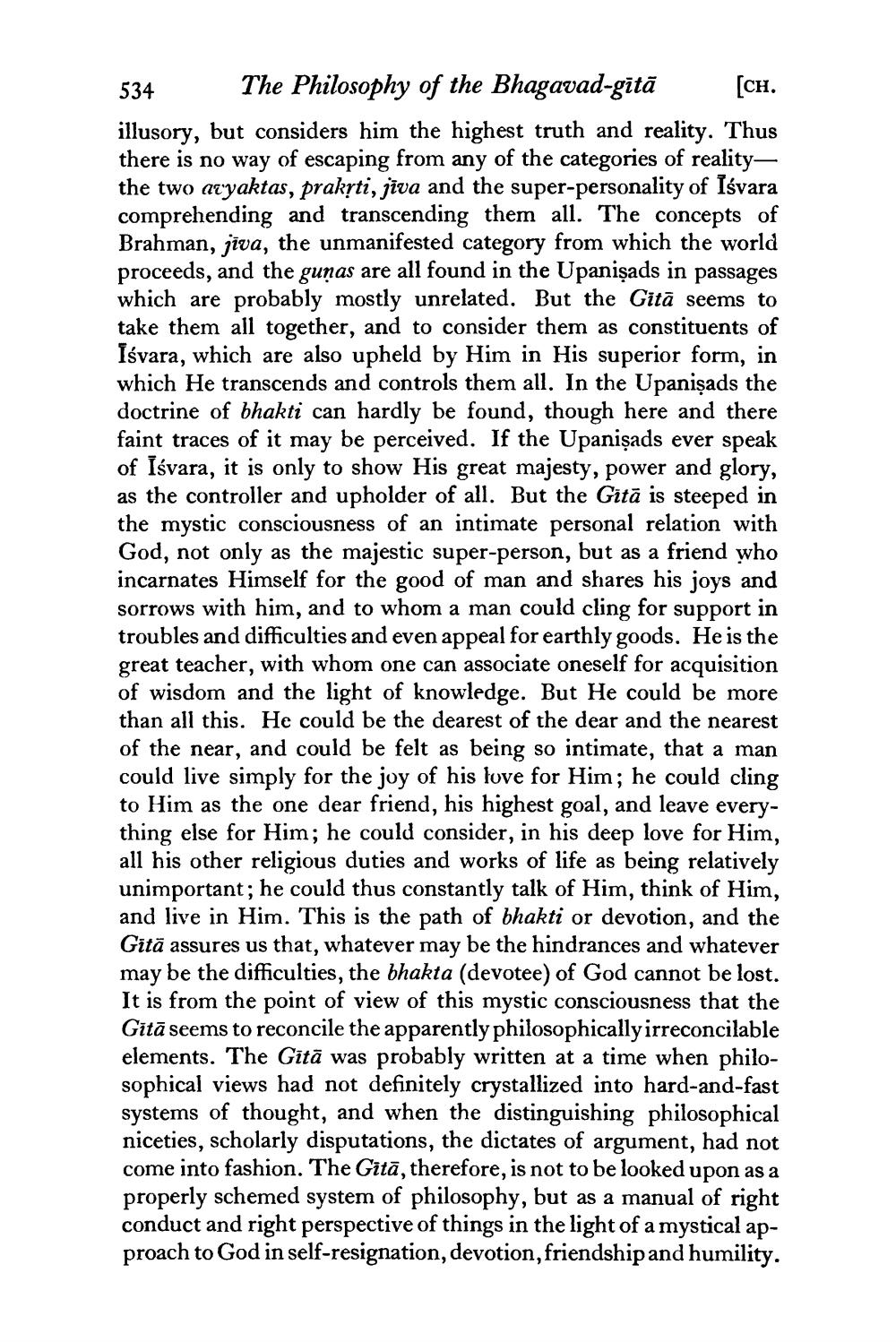________________
534 The Philosophy of the Bhagavad-gitā [CH. illusory, but considers him the highest truth and reality. Thus there is no way of escaping from any of the categories of realitythe two atyaktas, prakyti, jiva and the super-personality of Iśvara comprehending and transcending them all. The concepts of Brahman, jiva, the unmanifested category from which the world proceeds, and the gunas are all found in the Upanişads in passages which are probably mostly unrelated. But the Gitā seems to take them all together, and to consider them as constituents of Isvara, which are also upheld by Him in His superior form, in which He transcends and controls them all. In the Upanişads the doctrine of bhakti can hardly be found, though here and there faint traces of it may be perceived. If the Upanişads ever speak of Isvara, it is only to show His great majesty, power and glory, as the controller and upholder of all. But the Gitā is steeped in the mystic consciousness of an intimate personal relation with God, not only as the majestic super-person, but as a friend who incarnates Himself for the good of man and shares his joys and sorrows with him, and to whom a man could cling for support in troubles and difficulties and even appeal for earthly goods. He is the great teacher, with whom one can associate oneself for acquisition of wisdom and the light of knowledge. But He could be more than all this. He could be the dearest of the dear and the nearest of the near, and could be felt as being so intimate, that a man could live simply for the joy of his love for Him; he could cling to Him as the one dear friend, his highest goal, and leave everything else for Him; he could consider, in his deep love for Him, all his other religious duties and works of life as being relatively unimportant; he could thus constantly talk of Him, think of Him, and live in Him. This is the path of bhakti or devotion, and the Gitā assures us that, whatever may be the hindrances and whatever may be the difficulties, the bhakta (devotee) of God cannot be lost. It is from the point of view of this mystic consciousness that the Gītā seems to reconcile the apparently philosophically irreconcilable elements. The Gitā was probably written at a time when philosophical views had not definitely crystallized into hard-and-fast systems of thought, and when the distinguishing philosophical niceties, scholarly disputations, the dictates of argument, had not come into fashion. The Gitā, therefore, is not to be looked upon as a properly schemed system of philosophy, but as a manual of right conduct and right perspective of things in the light of a mystical approach to God in self-resignation, devotion, friendship and humility.




